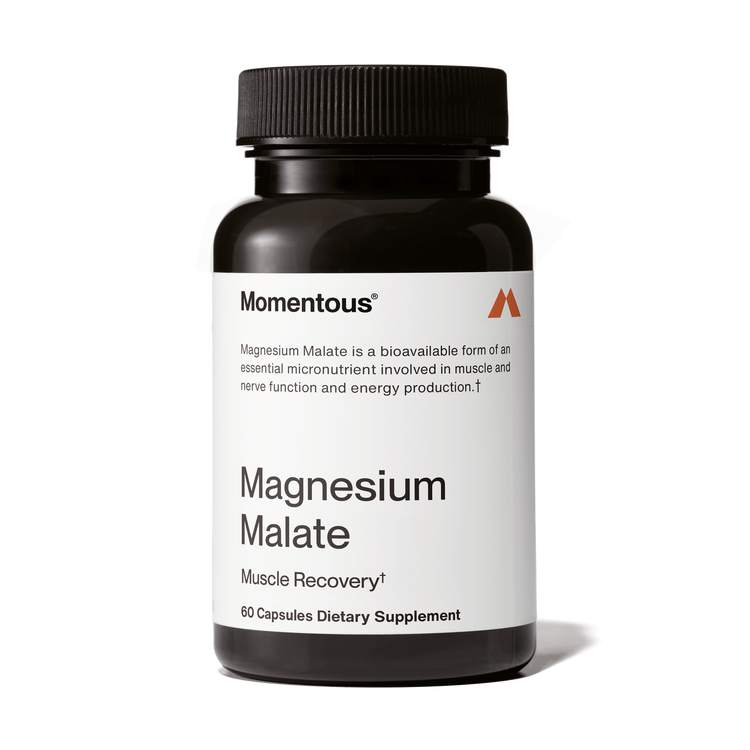Zinc and Magnesium -Should you take together? Benefits, Risks, Dosage

Related products
Magnesium and zinc are two important minerals that our body needs and serve various functions vital for health. They are essential in strengthening our body's immunity and maintaining nerve and muscle function, amongst many other benefits. These nutrients are mainly obtained from our foods but can also be consumed in supplemental form.
Magnesium plays a vital role in stabilizing blood pressure, controlling blood glucose concentration, supporting bone health, and aiding protein synthesis. The guide issued by the National Institutes of Health (NIH) states that adults aged 19-30 need about 310mg(men) /400mg(women). For those above thirty, intake increases slightly: women require around 320 mg, while men should aim for approximately 420 mg per day.
Zinc aids immune system functionality, wound healing, and sense development/taste/smell perception. NIH suggests adult males consume no less than 11 milligrams daily after reaching their nineteenth birthday, while females are advised to remain content below eight.
Both zinc and magnesium are important, and taking supplements contributes to health. But when combined, they multiply fortifying effects, making dual-delivery supplements increasingly popular. Nevertheless, caution must be maintained against excessive dosage, which might lead to potential side effects, including nausea, stomach cramps, diarrhea, and loss of appetite. Overdosing on either nutrient could result in unwanted outcomes; hence, optimal ranges identified by scientific studies/bodies adhered strictly to avoid detrimental repercussions.
Careful consideration should be given to the consumption of zinc and magnesium supplements. Understanding recommended daily dosages, potential interactions with other medications, and individual dietary needs can help ensure optimal nutrient intake for better overall body functionality.
Magnesium And Its Benefits
Magnesium is one of the body's most prevalent minerals, intrinsically linked to various critical physiological processes. Its role ranges from ensuring muscle and nerve function to preserving a steady heart rhythm to bolstering bone health, testifying to its compelling influence within our bodies.
Here are some benefits attributed to magnesium:
Cardiovascular Wellbeing: Sufficient consumption of this mineral directly regulates cardiovascular health by maintaining normal blood pressure levels and a stable heart rate.
Support for Bone Strength: Magnesium positively impacts calcium absorption in the bone formation process, thereby fostering skeletal robustness.
Aid in Diabetes Management: Recent scientific findings published in Current Diabetes Reports suggest that magnesium plays an instrumental part in glucose regulation, which supplements diabetes management protocols effectively.
Better Sleep Quality Promotion: Considering its natural relaxant properties, magnesium proves beneficial for those struggling with insomnia and other sleep disorders, enabling a peaceful night's rest.
Muscle Function Maintenance: It regulates muscle contractions, ensuring smooth operation of bodily movements.
Stress Relief Provision: magnesium has a calming effect on nerves, alleviating anxiety-related symptoms.
Prevention Migraines Reduction of severity and frequency of migraines lower prevalent among individuals sufficient levels /intake element.
Zinc And Its Benefits

Zinc, a trace mineral critical for overall health and well-being, serves multiple bodily roles. Among these functions are:
Boosts Immune System: Zinc is crucial in maintaining a robust immune system because it assists in making white blood cells vital fighters against infections and diseases.
Enhances Wound Healing: This mineral aids wound healing by playing a central role in collagen synthesis and inflammatory response; both integral factors speed up recovery post-injury or surgery.
Regulates Sense Perception: Zinc is required for optimal functioning of both taste buds and olfactory cells. It essentially allows humans to smell and savor meals fully, enhancing overall satiety signals sent to the brain and ensuring healthy eating habits don't waver unintentionally.
Supports Growth Development: Children particularly need ample amounts to ensure normal growth development stages – thus, deficiency during such periods leads to stunted growth cognitive delays.
Promotes Mental Health: Evidence increasingly links bioavailability to depressive symptoms, yet not enough talk around fact gives importance to mental wellness in today's high-stress era.
Can You Take Zinc And Magnesium Together?

Yes, It is perfectly acceptable to take the two minerals together because they work synergistically within the body.
Each mineral has individual health benefits; however, when combined in suitable proportions under expert supervision, their efficacy could be heightened, and additional advantages may become available. Taking zinc and magnesium has various benefits. Some of them include:
Enhanced Immune Function: Both minerals directly impact immune performance by regulating numerous cellular processes pivotal to a strong defense mechanism against pathogens. There occurs a significant increase in T-cell activation - an important aspect for immunity - with concurrent supplementation making it potentially beneficial during flu season or times of stress when immunity might naturally dip.
Augmented Bioavailability: One key advantage lies in the perceived enhancement of the bioavailability of both supplements taken in the same timeframe. Magnesium aids transport across cell membranes, processing vital absorption nutrients, including zinc, enhancing its overall efficiency.
Increased Athletic Performance: For those who participate in regularly strenuous physical activity, such as athletes and gym-goers, combining these can help post-workout recovery boost strength and endurance.
Improved Sleep Quality: Another promising area where combination affects sleep quality regulation. Among myriad factors contributing to a good restful night, one notably presents enough nutrients. Interestingly, though it plays an integral role in improving length depth REM cycles, case deficiencies exist, and a person struggling with insomniac tendencies benefits substantially from adding routine, as found in several accredited scientific journals.
Potential Risks And Side Effects
Taking supplements should be with caution, as the intake of these mineral supplements - while beneficial within a particular range - might trigger side effects when taken in excess or under specific conditions. Potential risks and associated side effects are:
Gastrointestinal distress: Overconsumption of either zinc or magnesium often leads to stomach upset, cramps, nausea, vomiting, and diarrhea.
Interference with medication absorption: These minerals tend to interfere negatively with certain medications, such as antibiotics and drugs used for osteoporosis treatment, by inhibiting their absorption.
Unhealthy imbalance between minerals: Intake must be comprehensively evaluated considering all dietary sources, ensuring no overrepresentation or deficiency occurs among various trace elements required for the human body's healthful functioning.
Impaired immune function: Particularly concerning is the ability of large amounts of zinc to affect an individual's capacity to fight off infections and diseases, disrupting the balance of immunity-related responses
Potential toxicity risk(rare but present): Extremely elevated levels lead to serious complications, including renal failure, anemia, and even death in extreme cases.
Dosage
Navigating the optimal dosage of zinc and magnesium is intricate and vital. A general rule of thumb when proceeding with supplementation is adhering to the recommended daily allowance (RDA) provided by certified health bodies such as NIH.
For adults, it's suggested that men consume about 420 mg of magnesium per day, while women intake around 320 mg/day. Regarding zinc, adult men are advised not to exceed an intake of more than 11n 11 milligrams daily after their nineteenth birthday, while females remain content below eight.
Yet these values fluctuate based on individual factors such as age, physical activity level, and pregnancy/lactation status.
A study shows evidence supporting higher doses for athletes due to increased demand during strenuous exercise. Meanwhile, the senior population might require lesser amounts due to the reduced metabolic rates in aging individuals.
Furthermore, pregnant/nursing mothers necessitate augmented consumption to support growing fetus/breastfeeding children respectively, thereby modifying standard RDAs significantly.
Therefore, obtaining a comprehensive picture of the exact needs/intake through professional guidance safeguards against pitfalls, overuse rationalizing gainful effects and nutrients, and strategically leading a balanced, healthier life ahead.

Zinplex Zinmag S-E Tablets are the best zinc and magnesium combination supplement available at Welzo. They come in a pack of 60 dietary supplements for £5.85 and have a 5/5 customer rating. Rich in zinc, magnesium, and selenium, these tablets enhance immune system efficiency and muscle function for overall health promotion.
Takeaway
Magnesium and zinc are crucial for good health. Their combined intake as supplements has proven benefits but requires careful consideration of dosage based on personal needs. Always consult with healthcare professionals to ensure safety, effective use, and optimal benefit from these minerals.





















 Rated Excellent by 14,617+ Reviews
Rated Excellent by 14,617+ Reviews